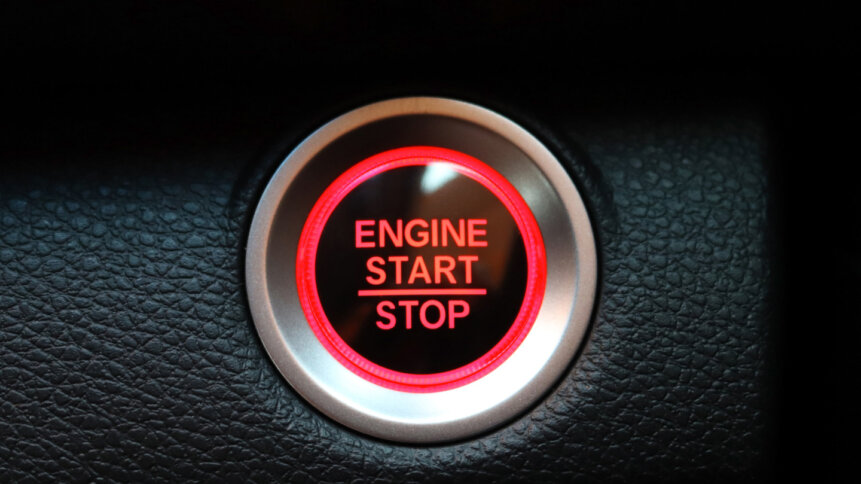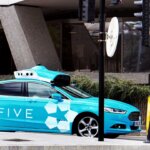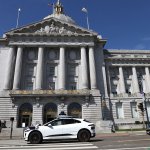Self-Driving Cars Become Science Fiction Again

In recent years, digital transformation as it applies to the automotive industry has amounted to two things: the drive towards electric vehicles on the one hand, and the push towards self-driving vehicles on the other.
While it is perhaps counter-intuitive when faced with the might of Big Oil, the push towards electrification has been spurred on by the likes of Tesla, and the potential economic benefits it can bring both to logistics companies and the worldwide supply chain, not to mention outside pressure to change the fundamental way things are done before the planet burns and the opportunity to make a relevant difference is behind us.
Meanwhile, the push towards self-driving vehicles – always a difficult and multi-faceted challenge – has run into roadblock after roadblock, until in 2022, full automation looks like an unrealizable dream in even the medium term.
The new Argonauts
There’s no clearer indication that self-driving cars are a dream that’s dying on its tires than the fact that the Ford Motor Company, one of the big three US automakers since cars became a reality, has just pulled out of its commitment to develop a full self-driving car.
That’s a $2.7 billion admission of the scale of the problems standing between human-driven vehicles and self-driven versions ‘in the wild’ of the world’s highways.
Ford invested $1 billion in Argo AI, a company dedicated to building self-driving vehicle technology, back in 2017, when the future of self-driving cars seemed like just a series of technological problems away from inevitability. Crucially, Argo was committed to delivering what’s known as Level 4 automation – cars that drive without any of the apparatus required for human intervention, like steering wheels, brakes, or gas pedals.
Now, Ford is abandoning its investment in Argo, in favor of developing Level 3 automated driving technology – but doing it in-house.
So-what autonomous driving
Level 3 has frequently been described as semi-autonomous driving – it will allow drivers not to pay full attention to the road all the time, but it demands that drivers pay enough attention to re-take control at any moment of potential peril. And while there’s an argument that such automation is little more than cruise control with knobs on, it’s a decision which has been dawning on the automotive industry for some time, given the required levels of AI and machine learning that would be necessary to make full automation fool-proof on the roads.
Argo has effectively ceased to exist as a result of Ford’s investment pull-out. But it’s no light matter for the carmaking giant, either – the decision left Ford with a $2.7 billion hole in its budget in the third quarter of 2022, amounting to a loss in the quarter of $827 million, out of what remains a fairly healthy profit.
And now, Volkswagen
When one leading player pulls out of a development path or even a full direction of industrial travel, the industry and the direction can still be salvaged. In fact, usually when this happens, other players swarm in to take the market percentage left absent by the disappearance of the leader.
But the development pathway to completely self-driving cars, particularly as it was confidently represented by the work of Argo, has suffered a double blow, because it was never a case of Ford taking a flyer alone on the technology. Argo was backed by both Ford and Volkswagen, one of the world’s other leading behemoths in the carmaking industry. In fact, the support of both these players was a large part of what made fully self-driving cars seem like such a certainty in the short-to-mid-range future.
But Volkswagen has pulled out of Argo too, leaving not one but two of the world’s largest players stalled in terms of Level 4 automated driving.
Over the last decade, the combined investment of carmakers in autonomous driving technology totals $160 bn. The investment shutdown from both Ford and Volkswagen is a signal to the industry that while the time will undoubtedly come when fully automated self-driving vehicles are a reality, that time is currently too far off to continue pouring good money after bad into the development path right now.
The self-driving future
Ford for one remains optimistic about self-driving cars in the long term, but reflecting on the company’s Q3 results, CEO Jim Farle acknowledged that “profitable, fully autonomous vehicles at scale are a long way off.”
Subsequent to the announcement from Ford and Volkswagen, Honda has said it still intends to get autonomous electric vehicles on the road by 2030 (which itself is a significant admission of the problems still to be solved before the dream can be realized), and Mercedes has shifted its position to focus on Level 3 automation.
The self-driving future – which appears to be crucial to unlocking urban social and economic mobility for people with disabilities in cities that were not built with them in mind – will still undoubtedly come. But to coin a phrase, the pull-out by Ford and Volkswagen means that the future just ain’t what it used to be – at least, not the short-term future.










